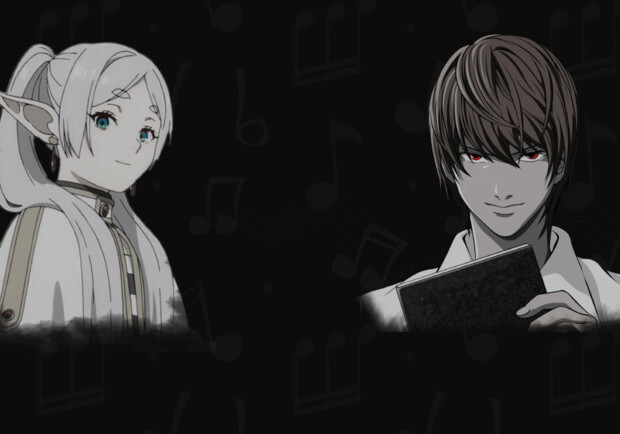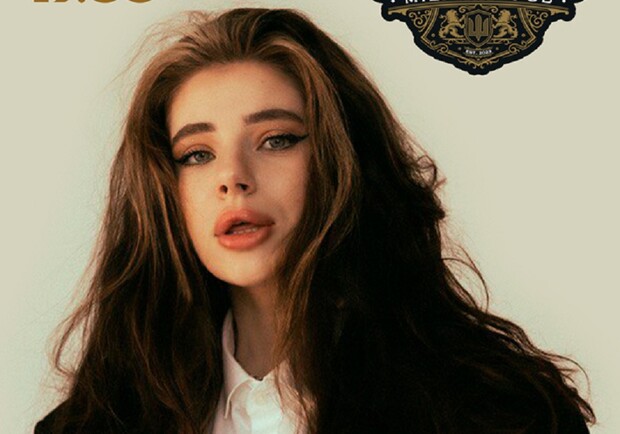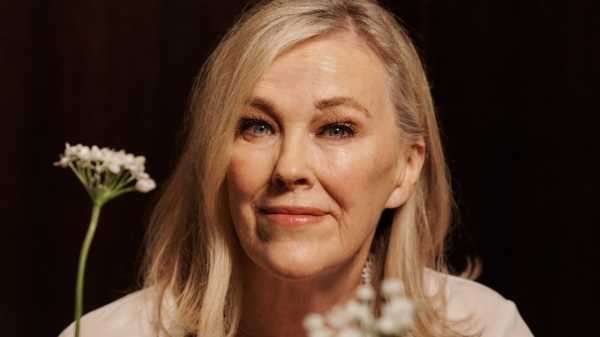
When I met Catherine O’Hara, on a recent afternoon at a hotel bar in midtown, she was wearing a ruffled ivory pirate blouse with a black ribbon tied around her neck and chunky, oversized black rings. The outfit looked like it could belong to Moira Rose, her flamboyant matriarch on the beloved comedy series “Schitt’s Creek,” who swans around a rural small town in monochromatic couture and a rotating collection of designer wigs. “Schitt’s Creek,” which was created by O’Hara’s longtime collaborator Eugene Levy and his son, Daniel Levy, both of whom also star in the show (Season 5 premièred last week), is a modern-day reverse “Beverly Hillbillies”: the Rose family, once the millionaire owners of a successful video-store chain, lose everything when their business manager commits fraud. Their only worldly possession is a one-horse hamlet called Schitt’s Creek, so the brood—Moira, her husband, Johnny (Eugene Levy), her son, David (Daniel Levy), and her daughter, Alexis (Annie Murphy)—must relocate to the town and squat inside its sole motel. It’s a classic city-mouse/country-mouse story, but O’Hara’s Moira, with her vainglorious flair for the dramatic and her peacocking wardrobe, elevates the show to a new level of ecstatic eccentricity. (If you need an introduction, watch the fake fruit-wine commercial she films in Season 1.)
People of a certain generation likely know her as Kevin’s mother from the “Home Alone” series, but O’Hara has been working in the business since the seventies, when she joined the Second City improv troupe in her native Toronto, as an understudy for Gilda Radner. That troupe also included Eugene Levy, Andrea Martin, John Candy, Rick Moranis, Martin Short, and Dan Aykroyd, among others, and those members who did not join the original cast of “Saturday Night Live” went on to create the cult-popular Canadian sketch show “SCTV,” which aired on NBC in the United States. After leaving “SCTV,” O’Hara played the wicked stepmother Delia Deetz in Tim Burton’s “Beetlejuice” and then spent the nineties as part of Christopher Guest’s troupe of oddballs, starring in his absurdist, unscripted mockumentaries “Waiting for Guffman,” “Best in Show,” “A Mighty Wind,” and “For Your Consideration.” During our free-wheeling conversation, we discussed Moira Rose, the origins of her collaboration with Levy, and the one idea that Christopher Guest would not let her put on film.
The following conversation has been edited and condensed.
You’re dressed like Moira today.
I have always done black and white when I travel.
It’s easy.
It’s easiest. I can’t plan ahead what I’m going to wear, so I just grab a bunch of black-and-white things, maybe some gray, maybe some blue, that’s it. But now, oh, yeah, my eye is drawn to it more than ever.
You have the chunky jewelry, too.
Before playing Moira I would probably not have worn this many rings at once.
How did the look of the character evolve?
It was serendipity, simpatico—if I had Moira’s vocabulary, I’d know how to put it. After we all agreed we were going to do the show, I had lunch with Daniel and Eugene Levy, and I knew we were going to talk about what I was going to look like. And I’d found all these pictures of Daphne Guinness. Her wardrobe, it’s just so great and extreme. It’s strong and it’s armor, which is perfect when you’ve had your life ripped out from under you, like Moira, and you’re in this place that’s like the town you got out of earlier in life.
Whose idea was it to have you wear vests with your pajamas?
I believe that was mine. It was this idea of wearing basically a business suit to bed, because there are so many pin-striped pajamas. I think that’s how it started. But the brooch idea might have been theirs.
Did it help you find Moira, too, once you got the clothes on?
Absolutely. Every day I put those clothes on, it makes me stand differently, walk differently.
You’ve had a lot of good walks in the course of your career. I read somewhere that Cookie’s walk in “Best in Show,” the goofy limp at the end, was your walk also.
My dad used to do it to make us laugh. He’d walk ahead of us and make us laugh. I have six sisters and brothers—they could all do that walk. I got to use it on film, weasel that I am. The night before we shot that scene in “Best in Show,” where I would fall, and then [Eugene’s character] Gerry Fleck would have to take over handling the dog, we were talking about the logistics, and I asked Chris, I said, “Do you think I could do this?” I walked away from him like that.
He went, “Yeah, yes.” Nothing better than getting a yes on a ridiculous idea.
Did you grow up in a funny family?
Yes, I honestly did. Everybody in my family’s funny. Being funny was highly encouraged in our family, I think. My dad would tell jokes, and my mom would tell stories and imitate everyone within the stories. I think everyone is born with humor, but your life can beat it out of you, sadly, or you can be lucky enough to grow up in it.
When did you first think, I want to do this professionally?
I watched “[Rowan & Martin’s] Laugh-In,” and I impersonated people for my dad, and that would really make my dad laugh.
Do you remember who you would do?
I did all men. I did James Mason, Paul Lynde, Alfred Hitchcock. Then in high school we had a great theatre-arts teacher who didn’t believe in a stiff school curriculum. She just wanted to let us fly and be free and create. In a weird way, it was great training for Second City, where we created our material.
Then my brother worked in a small theatre, called Global Village, in Toronto, and met a girl named Gilda Radner, God bless her. They worked together, and they dated, and Gilda would come home to our house for dinner.
How long did your brother date her?
I think it was two years. It was all Gilda as far as opening up my world to Second City. That’s where I met Eugene and Marty [Short] and Andrea [Martin], all the people I ended up working with years later. Gilda got into Second City, and I auditioned and got a job as a waitress [in the theatre] instead. Then John Candy hired Marcus—my brother—and me for the touring company, and Joe Flaherty made me the understudy for Gilda.
You had to go on for Gilda?
The Second City Chicago cast and the Toronto cast had a trade, where the Chicago cast, which included John Belushi and Bill Murray, played the travel stage, and our cast—Dan Aykroyd, Eugene Levy, John Candy, Gilda, and me—we played their stage. I think it was a four-week trade, and the first two weeks Gilda did the show. Then she got a job in “National Lampoon,” and I got to dare to take her place. I basically imitated her for months.
Were you scared?
Yes. My crutch was, in improvs: when in doubt, play insane. Because you didn’t have to excuse anything that came out of your mouth. It didn’t have to make sense.
So all your first characters were unhinged.
Yeah.
When did you first take note of Eugene?
When I was waitressing. We tried dating, actually. There’s nothing sexier than making each other laugh. I think everybody tried dating everybody.
But it didn’t work out between you and Eugene.
I’m so glad it worked out that way. We probably wouldn’t be working together if we’d gone longer on the dating. Really, it was, like, one or two dates. That’s it.
Back then Eugene and I were never really a “team.” Just somehow we’ve grown together in these years.
“SCTV” came after that. You wrote for that show, too. How did that feel?
When you’re writing, you’re putting thought into what you want to express, and then you come up with it—it comes to you. When you’re improvising, it’s the same thing. You’re writing. You just say it out loud right then, instead of saying, “You think this might work?” The best improvisers, all the people that were great in the Chris Guest movies, are all great writers.
Really?
Oh, yeah. Every one of them writes, because you have to have a sense of the scene. It’s not just standing there doing jokes. You’re working with everyone else. You have to listen. You have to be ready to move in whatever direction the strongest character’s taking you. You have to have a sense of where you’re going and what needs to be accomplished.
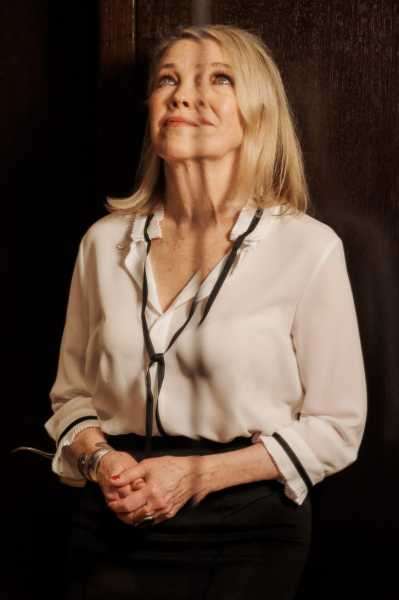
Catherine O’Hara.
Photograph by Cait Oppermann for The New Yorker
Some of those early characters of yours, how did you develop them? Are there any that are still dear to you?
Lola Heatherton was a character I did in “SCTV.” Everybody had a Vegas character except me. I really didn’t have one. Andrea [Martin] was doing one called Lorna Minnelli. She was Liza and Lorna and Judy all at once. We would play with the names. I was called Lola Heatherton because I had seen Lola Falana, the singer who used to be on “The Tonight Show” and “Merv Griffin.” I stole the stupid lip-quivering thing from her, and the kitten-with-a-whip thing from Joey Heatherton.
I didn’t have many recurring characters, but I think I probably did Lola more than any others. Really, I’m still doing it on “Schitt’s Creek,” as Moira.
Did you ever have your sights set on coming to the U.S.? Was there a point when you were, like, “I’m going to go to Hollywood”?
Well, I was in “Beetlejuice,” and the production designer, Bo Welch [who is now O’Hara’s husband], was very attractive, and he finally asked me out. We went on location at the end of the movie, and we started dating. I moved to L.A. to be with him.
For a romance.
Yeah, I moved for love.
How did you think about show business from that standpoint, living in L.A.?
I didn’t. I’d been asked to audition for “Beetlejuice.” I had all these calls with David Geffen, who was a producer. I didn’t know him at the time. Out of ignorance, I’m, like, “Who is this guy? He keeps bugging me.” He kept calling and saying, “This is a part for you. You should be doing this.” He kept calling. Then they said they wanted me to meet this guy, Tim Burton. I didn’t know Tim Burton. Then finally I was depressed at home, and I had nothing going. I said, “O.K., I’ll go audition. I’ll go meet him.”
I flew to L.A. from Toronto, and I rented a car. The address was in Burbank. I drove for hours. I thought, What kind of director is this far from show business? I was so late. I got lost. There was no cell phone. I had to pull over somewhere and find a phone booth and phone my agent. I finally, two hours late, got back to Burbank. There was a note on the door from Tim Burton. It said, “I’m sorry. I waited as long as I could.” I go back home to Toronto. A few weeks later they offer me the part.
It’s a good trick. If you’re bad at auditioning, just don’t go.
Are you bad at auditioning?
I always was, yeah. When you’re on the job, it’s so collaborative. It’s about everyone. When you’re auditioning, it’s only you. It’s so not related to what the job will be, really.
I remember auditioning for some movie, to be Robert De Niro’s wife in something. You’re reading for three people sitting in chairs behind a desk. They were nice enough. They chatted, and then, “Let’s do the scene.” It’s one of my worst memories, how cheesy I was. I was in a chair, but the scene took place in a bed. I tried to lie down in the chair and look like I was in a bed to read it. That’s typical of most of my auditions.
MORE FROM
The New Yorker Interview

“The World Is, of Course, Insane”: An Interview with Errol Morris
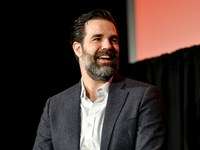
Rob Delaney on Writing While Grieving and the Real Work of Comedy

Adrian Nicole LeBlanc and Gary Gulman on Comedy and Depression
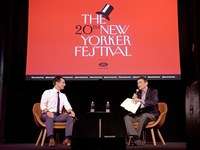
Pete Buttigieg Talks Impeachment, Health Care, and the Political Spectrum

Amartya Sen’s Hopes and Fears for Indian Democracy
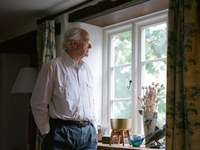
The Fallen Worlds of Philip Pullman
Is it true that you were cast on “S.N.L.” but never really went on?
I’m not proud of it. We were doing “SCTV,” and then we thought Andrew [Alexander, the head of Second City] would have a deal with “SCTV,” that we’d finish that run, and then he had no deal. I got called for “Saturday Night Live.” I went. It was in the summer. They were just starting to write the next season. Then Andrew called. He had a deal with NBC, same network. Then I had to go to the producer and say, “I’m sorry, my family needs me. My [comedy] family is calling.”
It seems like a lot of your career is these collaborative efforts. You’re drawn to projects where everybody is called to do their best and to pitch in.
Absolutely. Why work alone if you don’t have to?
It’s all give and take. It’s all about listening to others and contributing. Even if you didn’t want to act, improv classes are great, because they teach you about conversation. Although I’m talking an awful lot about myself right now.
It’s an interview with you.
I know. But it’s taught me, if I’m at a table having dinner with people, and a friend of one of the people at the table comes to the table, and there’s a quiet moment, I will jump in. I don’t even know the person. It’s just, “O.K., pick up on the conversation. Have something to offer.” To a fault, I’m sure. I probably should let more quiet moments happen.
I want to hear about the first movie you made with Christopher Guest.
It was “[Waiting for] Guffman.” It was really thrilling. Scary and thrilling. When I first arrived in Austin, where we shot it, they had already shot a few scenes, and I arrived and met with Chris, the day before, and he showed me some footage. That was even more intimidating, to see what other people had done. And he said, “Don’t worry about being funny, just be in the scene.” And, of course, we shot ninetysomething hours of footage.
There’s such a freedom in the way Chris works, because you improvise, and you get it on film; then he can use whatever he wants, and cut whatever he wants or throw out whatever he wants, but it’s there. There’s no filter.
Was there anything from those movies that you did where you remember thinking, He’s not going to use this, and then he used it?
I did have Chris say no to one thing in “Best in Show.” It was based on something I had heard about in real life. So I told Eugene this idea, and I said, “I’m thinking of doing this . . . idea, backstage with the dog.” You never have to run anything by Chris. We all know what’s supposed to be achieved in the scenes and we do our best. We’re also free to offer anything. But I must have known this was risky enough that I ran it by Eugene.
And he was, like, “No, no, no, don’t do it”?
Eugene said, “You might want to run that by Chris before we shoot.” I go, “Well, he can say no afterwards, he can not use it. . . .” And Eugene said, “No, I think you might want to. . . .”
Never in any shooting of those movies did Chris ever say no, except in that moment. I’ll just say it involved . . . “relaxing” a dog.
I kept saying, “But I know somebody who does it! ’Cause the dogs are nervous before the show!”
And he was, like, “No, Cookie, we’re going to pass”?
I think he was right.
Sourse: newyorker.com


